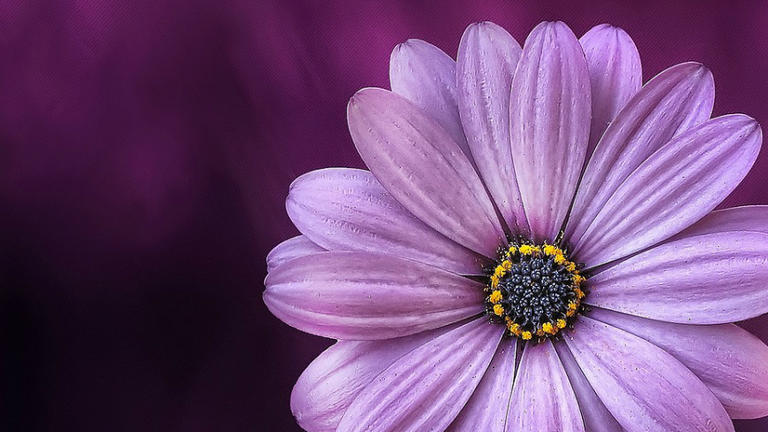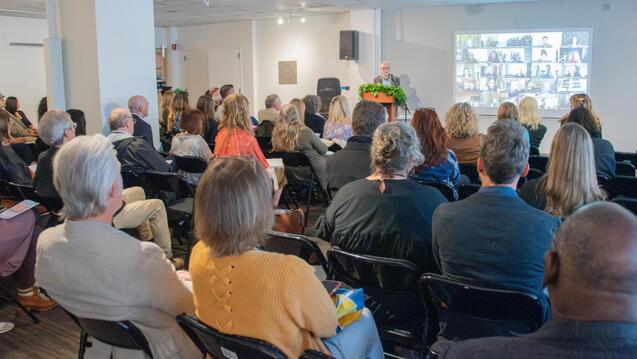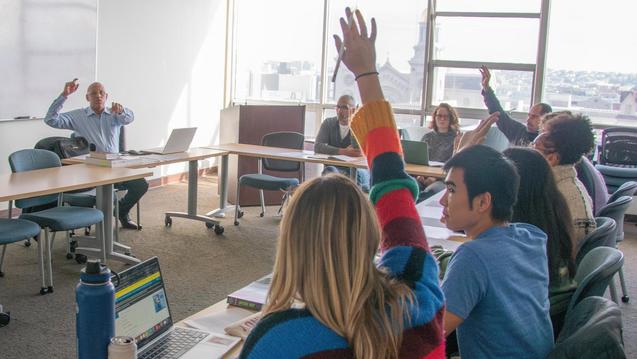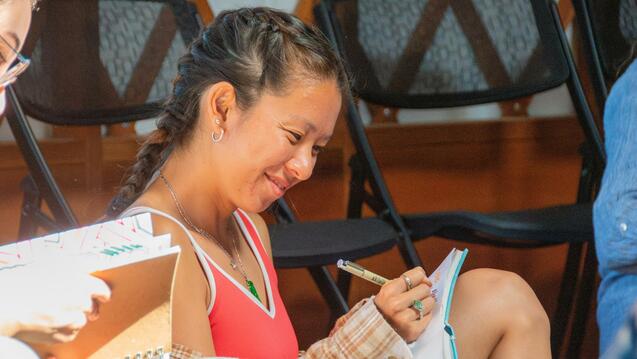Over 370 participants gathered at CIIS to honor Jung’s 150th birthday in a transformative exploration of psyche, purpose, and collective healing.

2021 International Women's Day Statement
On the Occasion of March 8 - International Women's Day and Women's History Month
Why do we have Black history month and Women’s history month, but no white men’s history month?
While we invite dialogue about this, the short answer is: that every month is white men's history month. Our country is still in thrall to white male supremacy. Of course, not all men are male supremacists in relation to women, and not all white people are white supremacists in relation to people of color. Yet the dynamics of white male supremacy have dominated our national politics strongly for the past four years, and arguably since the founding of the United States.
Our country is in the continuing throes of a struggle between those who wish to perpetuate white male supremacy as the government of the land; and those who are struggling toward a more just and inclusive society. Which side of history are you on? And why?
The contemporary women’s movement has many roots, two of the major ones being the liberal and socialist movements of the nineteenth century: “liberté, egalité, fraternité” with “liberty and justice for all.” European middle and lower classes began overthrowing the monarchies and aristocracies, altogether, or at least sidelining them, because of their excessive abuses of power and the continuing impoverishment of the vast majority of the people. The rebels and revolutionaries of those days insisted on democratic republics. Women and people of color were still excluded from governmental power. A third root of the contemporary women’s movement emerged in the nineteenth century in tandem with the movement to abolish slavery.
The struggle over economic and race relations between the North and South was the main rupture that split the United States in the mid-eighteenth century. And in some ways, it is still this great divide that is being fought again today. Violence against non-white communities and violence against women is on the rise again. And one is hard-pressed not to interpret the handling of the pandemic crisis by various leaders, in part, as racially motivated. It is the people of color who are most at risk and suffering the most from the deadly Covid-19 virus.
Now, why do we need a women’s history month (as well as special history months for people of color)? Again, we invite conversations about this. Our answer is: women do not yet share equally in the crucial decision-making powers in our society, and so women's needs and interests are not protected and advanced adequately by the politics, laws, and religions of the land. Women's voting rights are thwarted. Women's reproductive freedoms are under attack. Physical and sexual violence against women is widespread. Women's spiritual leadership is all too often denied and women's right to be free in our spirituality is not guaranteed. And so, we need to learn from our history and her stories, in order to build a stronger women’s movement in tandem with a stronger progressive movement for a more inclusive, just, and ecologically sustainable future.
The custom of International Women's Day was inaugurated over a century ago in 1909. The idea spread to Europe, but then this was not widely celebrated in the United States until 1975. Then in 1978, in California, the Sonoma County Commission on the Status of Women declared a Women’s History Week, which grew so rapidly in popularity in schools across the country, that in 1987, Congress declared March to be Women's History Month.
Although so many issues remain to be addressed, the National Women's History Alliance (NWHA) in the US chooses one theme each year for Women’s History Month. This year the theme continues that of last year: "Valiant Women of the Vote: Refusing to be Silenced." The NWHA asserts that for inspiration for the campaign for women's access to the vote,
We can look to civil rights activists of the past like Ida B. Wells, Ella Baker, and Shirley Chisholm, who championed voting rights for women and Black people. Or, we can acknowledge 21st-century leaders like Nobel Peace Prize-nominee Stacey Abrams (and the women of Romancing the Runoff who supported her) whose organizing skills helped register at least 800,000 new voters in the state of Georgia, turning it into an essential battleground state during the 2020 election.
At CIIS, our Women’s Spirituality Graduate Studies program affirms the value of women’s spiritual leadership for eco-social justice. Core faculty Alka Arora has been promoting the important idea of women’s spirituality as the Fourth Wave of Feminism. Core faculty Mara Keller declared at the Parliament of World’s Religions (in 2015 and 2019) that Goddess people are activists in many social justice movements, and at the same time, we want to assert that “The Freedom of Religion to Worship Goddess is a Social Justice Issue”! And core faculty Annette Williams’ work on women’s spiritual power offers a vision of women healing from the wounds of patriarchy.
We are grateful to our CIIS leadership and community for the rare opportunity for a focus on Women’s Spirituality to persist and thrive within an academic setting. We know we share many similar values with the CIIS community, and we know that we can all be stronger and more effective by working together toward eco-social justice, with compassion and love.
Sources:
"Honoring the Diversity of the Women's Suffrage Movement." Ms. Magazine
"Mary Church Terrell, the Forgotten 'Face of African American Women’s Suffrage Activism." Ms. Magazine
"The Very Queer History of the Suffrage Movement." Ms. Magazine
"How Native American Women Inspired the Women’s Rights, Suffrage Movement." Ms. Magazine
Related Academic Programs
M.A. in Women, Gender, Spirituality, and Social Justice and Ph.D. in Women's Spirituality
Related News
Your roadmap to becoming a licensed clinical psychologist through CIIS' integral, holistic approach to doctoral training and professional practice.
Discover your fit among CIIS' five counseling psychology concentrations, each offering a unique path to becoming a transformative healer.



